Dan Sewell: Former TV sports reporter tackles 'The Mental Game'
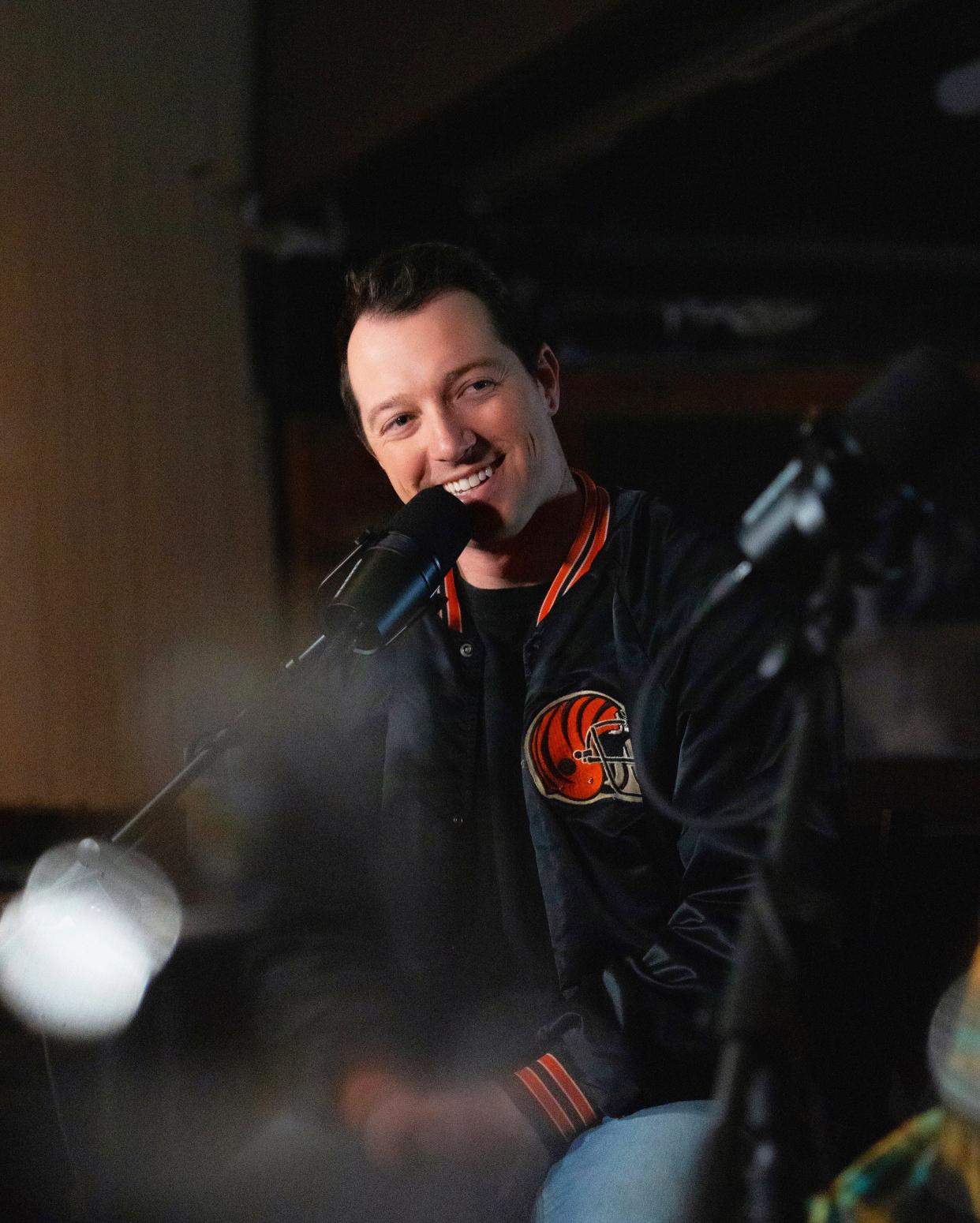
- Oops!Something went wrong.Please try again later.
- Oops!Something went wrong.Please try again later.
Former sports reporter Brandon Saho has a new game − one that could save lives.
Saho took a "mental health break" from WLWT in early last year to deal with depression that had made him suicidal, checking himself into a mental care center. A few months later, he decided to permanently leave what had been his dream job, covering the teams of his Cincinnati hometown for television. His therapist had been asking him what he really wanted to do, and the idea for "The Mental Game" podcast was born.
"I wanted to do my own thing … combining journalism and mental health together. I just found a new passion, something that gave me a new purpose in life," the University of Cincinnati alum said in an interview ahead of a "Mental Game Pep Talk" tour in which he scheduled speaking engagements at 10 Cincinnati-area schools Sept. 5-8. It comes during Suicide Prevention Month, after a record year for reported suicides in the United States that hit nearly 49,500 deaths.
He launched the podcast last year. Besides sports figures such as Bengals Coach Zac Taylor and defensive end Sam Hubbard and University of Cincinnati basketball Coach Wes Miller, he’s had on comedian Dane Cook, "The Office" actor Kate Flannery, rapper ClockworkDJ and country music’s David Morris among others on his weekly podcast. The interviews can be seen on multiple social media sites including YouTube and @MentalGamePods on X/Twitter.
"It doesn’t matter how much money, how much fame you have, everyone struggles," he said. "It goes up and down from being suicidal like I was or just having day-to-day anxiety. Every single person has a story to tell. This gives them a safe space to do that."
One particularly moving guest was Ryan Shazier, the Pittsburgh Steelers All-Pro linebacker whose career ended abruptly from a spinal injury during a tackle.
"My life completely changed," said Shazier, who played college football at Ohio State. "I definitely had dark days."
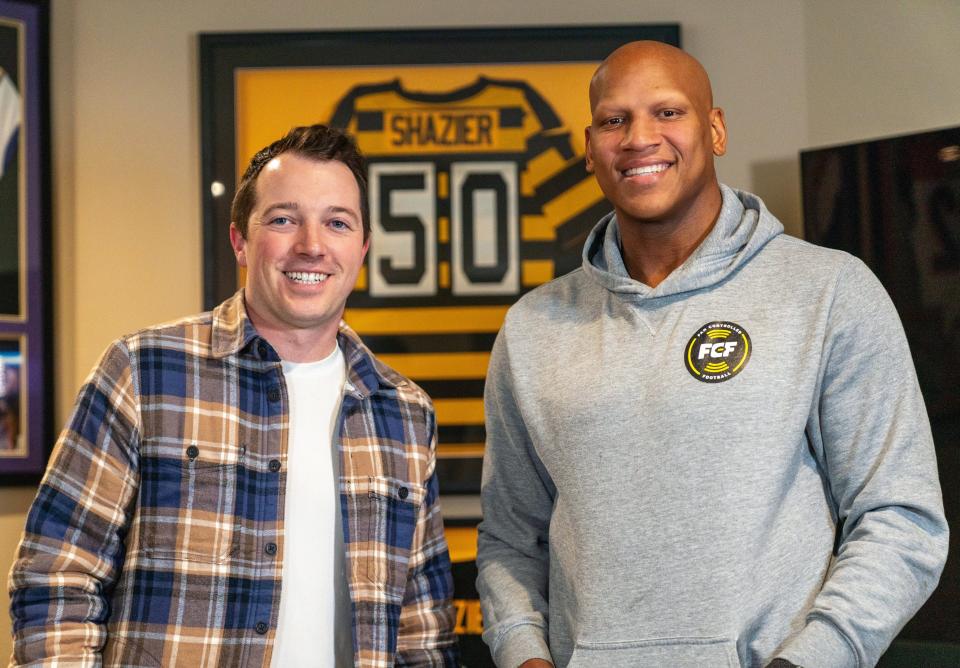
Shazier told Saho he focused on milestones of progress in his battle to eventually walk again and while talking through his feelings with family and friends, including his future wife who stayed by him through his ordeal.
"He worked so hard to come back, somebody who had almost their entire life taken away," Saho said. "It’s so touching, inspiring and personal, and just incredible to hear how he was able to stay positive."
Saho, who has been driving for Uber at times to pay his bills, said the podcast is increasing audience and attracting sponsorships, and he has a Los Angeles trip coming to interview some big-name guests he declined to identify yet.
"It’s starting to turn the corner," said Saho, 30. "It’s been a little bit of a struggle."
He hopes to build it into the nation’s biggest mental health podcast, and the work he puts into it is fulfilling as he tries to put his long struggle with depression behind him. He stopped drinking more than six months ago. He can recount the times over the years he would be leaving bars and feeling ready to jump off the Roebling Bridge or lie down in traffic on a busy street.
He came nearest after a period in which he went through a relationship breakup and the deaths of his grandmother, an uncle, and a cousin he was very close to. He said one morning he wrote a farewell note, took pills and went to sleep hoping not to wake up. When he did, he realized it was time to get help.
And now he wants to share his story and those of others.
"I want to help anyone who was struggling like I was," he said.
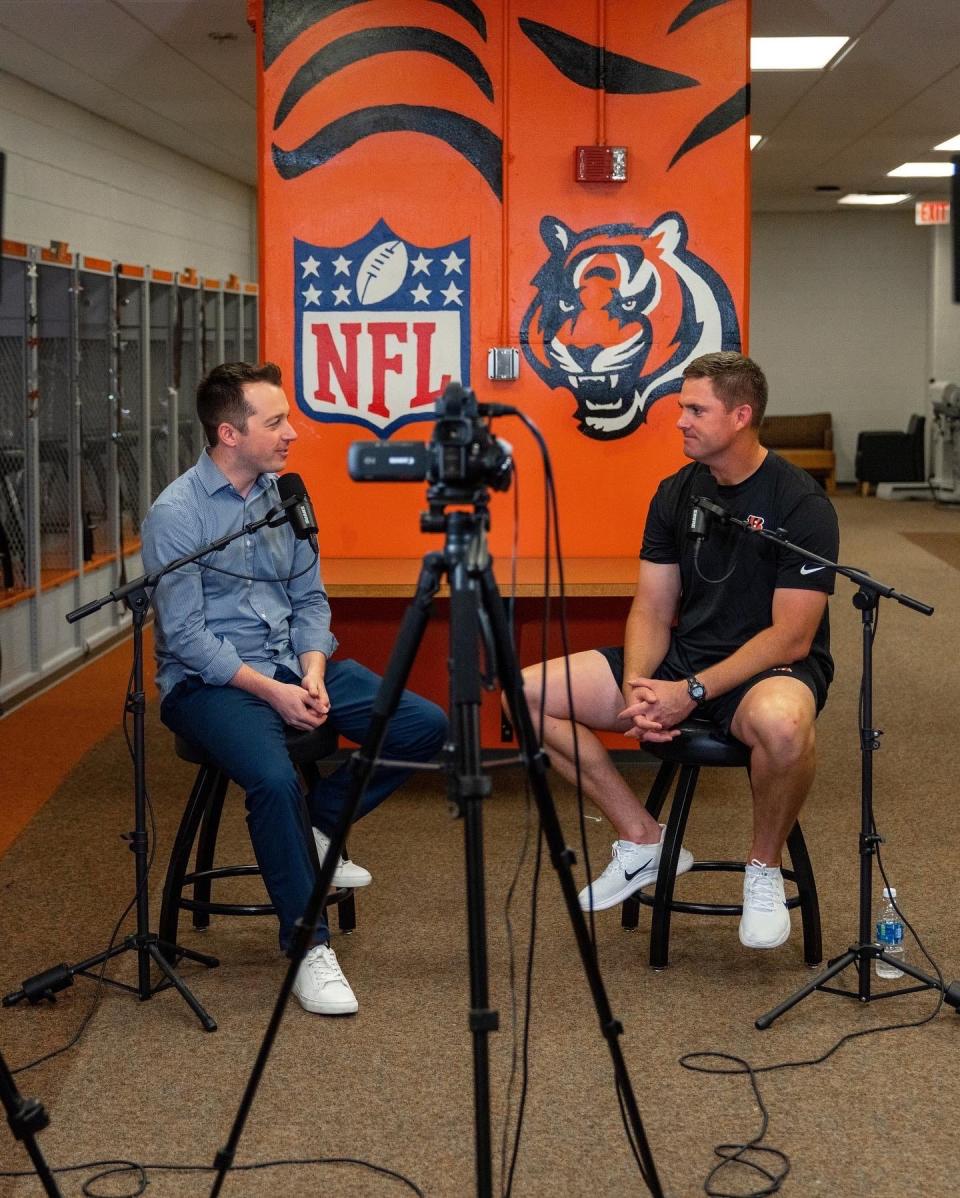
When he talks to students, he shares a story of his humiliation when he was 14 and attending his LaSalle High School’s football game at Elder. He had sent a nude photo to a girl, and at the game, he saw fellow students looking at their phones, then looking at him and laughing as the photo got shared. That night was the first time he thought of killing himself, but it eventually just became a bad memory.
He said the pervasive use of social media now by teens adds mental pressure by making such embarrassing incidents easier to spread, and enabling bullying and insulting at any time.
"People making fun of you behind a screen. It’s not real life," he said.
"Even if something goes really, really bad and you feel there’s no hope, you can get out of this, you can come out on the better side. Feelings are temporary.
"You have to talk about how you feel. If you don’t, and you hold in all this emotion, that’s when something bad can happen. Ask for help, talk to somebody, you can get through it."
He gets pick-me-ups in messages from those who have watched the podcast or heard him share his story and tell him how it has helped them cope with their own issues and even decide to get help.
"My goal is to save lives," Saho said. "It really is a genuine mission. I’ve been through hell and now I want to help other people."
(If you are ever feeling suicidal, call 988 for help).
EXTRA POINTS
Mad About Wayne Forest Name
Some Ohio elected officials are trying to shoot down a proposal to change the name of Wayne National Forest in southeast Ohio.
Native American tribes want the 244,000-acre forest’s name changed because of namesake Gen. Anthony Wayne’s violent campaign against their ancestors. A change to Buckeye National Forest is under consideration before the U.S. Department of Agriculture.
"Mad Anthony" Wayne was a general in the Continental Army who was recalled to service by President George Washington for the Northwest Indian War, which hadn’t been going well. He decisively defeated Indian resistance in the Ohio region at the Battle of Fallen Timbers in 1794 and had his soldiers destroy their crops and homes. They ceded the Ohio territory.
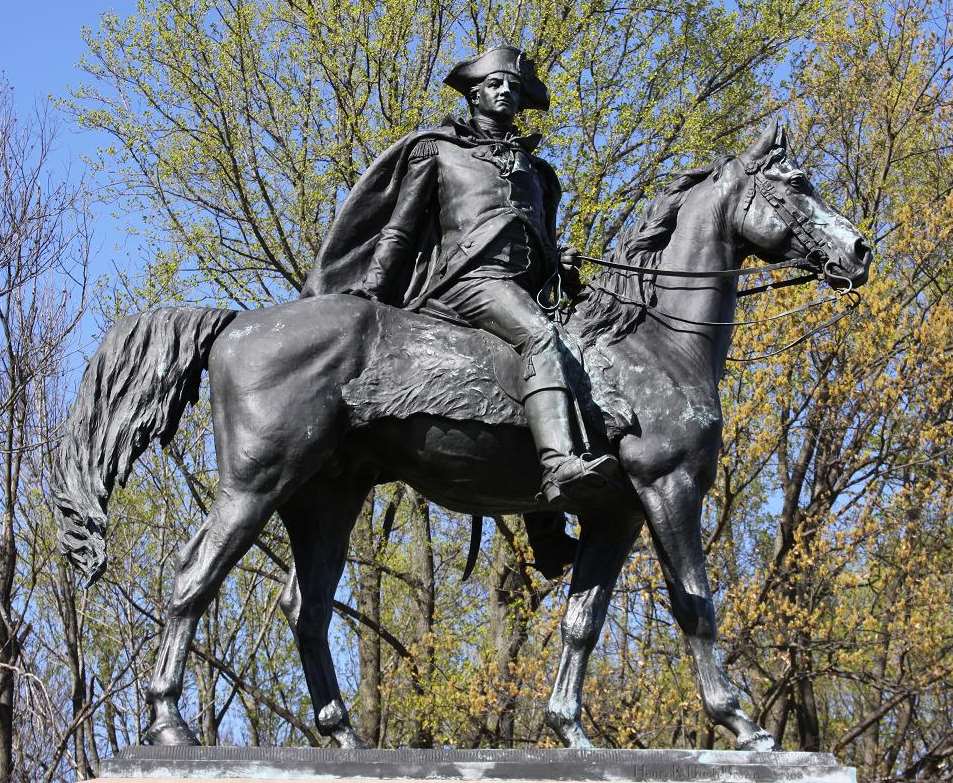
Among those opposing the renaming proposal are U.S. Sen. J.D. Vance, Secretary of State Frank LaRose and House Speaker Jason Stephens, all Republicans. Vance wrote to Forest Service and Department of Agriculture leaders that Wayne’s efforts were pivotal in the birth of the state of Ohio and came through battle, just as the nation’s independence from Britain did. He said the proposal "represents a lack of fidelity to our nation’s founding generation" and is insulting to Ohioans.
"You believe us incapable of appreciating the complexities of American history," Vance protested.
I wrote in a July 26 column that the Defense Department was correct to remove the names of Confederate generals from U.S. military installations. They, after all, took up arms against the United States in civil war.
However, Wayne was under the direction of President Washington in battling the tribes, who had British backing, and securing territory for the new nation. And he’s not the only Indian fighter with a national forest named for him. Famed pioneers Daniel Boone of Kentucky and Davy Crockett of Tennessee also do.
But Wayne doesn’t share their legendary hero status, perhaps because he was never featured in his own television series as Crockett and Boone were (although the fact they were both played by Fess Parker was a subject of some childhood confusion).
"Late-Term Abortion" Can Be Misleading
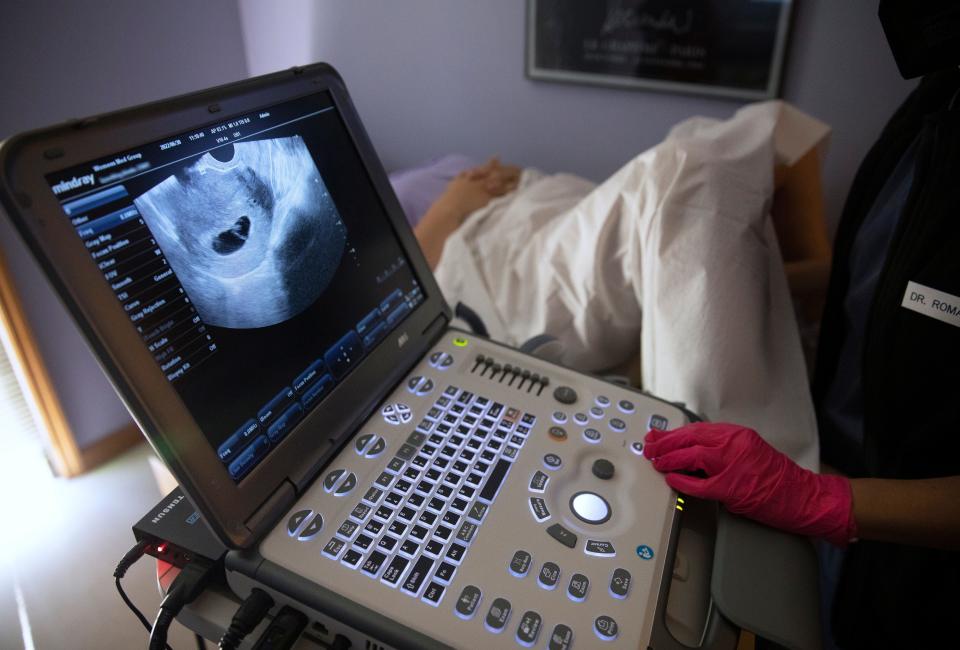
Some politicians and activists opposed to Ohio’s proposed constitutional amendment to ensure abortion access often use the word "late-term abortion."
The problem is "late-term abortion" isn’t a medical term and doesn’t have a consensus definition. Abortion opponents imply "late-term abortions" would be common if the amendment passes Nov. 7.
The proposal says abortions would be permitted up until the fetus is considered capable of living outside the womb, generally at 22-24 weeks of gestation.
More: What would the Ohio amendment on the ballot mean for abortions later in pregnancy?
The latest full-year federal abortion statistics for 2020 − two years before the U.S. Supreme Court overturned the Roe v. Wade ruling on abortion rights − show 99% of reported abortions came before that 22-24-week period, with 80.9% before nine weeks and 93% before 13 weeks. The amendment would allow abortions later than the viability period in cases when the mother’s health or life is in peril.
Abortion opponents say that allows abortions "up to the moment of birth." Such an abortion would be extremely rare. A woman presumably would not carry an unborn child for nine months to then have an abortion unless something has gone very wrong.
Dan Sewell is a regular Opinion contributor. Contact him at his personal email: dsewellrojos@gmail.com.
This article originally appeared on Cincinnati Enquirer: Dan Sewell: Former TV sports reporter tackles 'The Mental Game'

